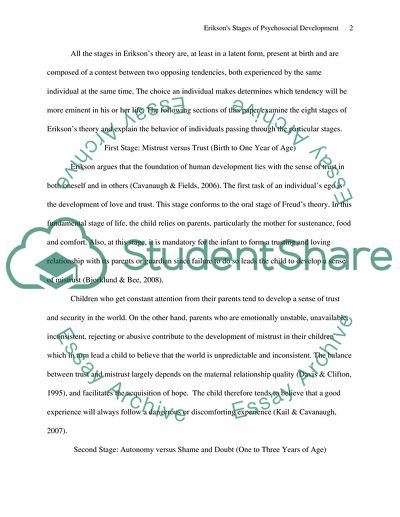Cite this document
(Erikson and Each Stage of Psychological Development: the Effect of Research Paper, n.d.)
Erikson and Each Stage of Psychological Development: the Effect of Research Paper. Retrieved from https://studentshare.org/psychology/1733024-eriksons-stages-of-psychosocial-development
Erikson and Each Stage of Psychological Development: the Effect of Research Paper. Retrieved from https://studentshare.org/psychology/1733024-eriksons-stages-of-psychosocial-development
(Erikson and Each Stage of Psychological Development: The Effect of Research Paper)
Erikson and Each Stage of Psychological Development: The Effect of Research Paper. https://studentshare.org/psychology/1733024-eriksons-stages-of-psychosocial-development.
Erikson and Each Stage of Psychological Development: The Effect of Research Paper. https://studentshare.org/psychology/1733024-eriksons-stages-of-psychosocial-development.
“Erikson and Each Stage of Psychological Development: The Effect of Research Paper”, n.d. https://studentshare.org/psychology/1733024-eriksons-stages-of-psychosocial-development.


